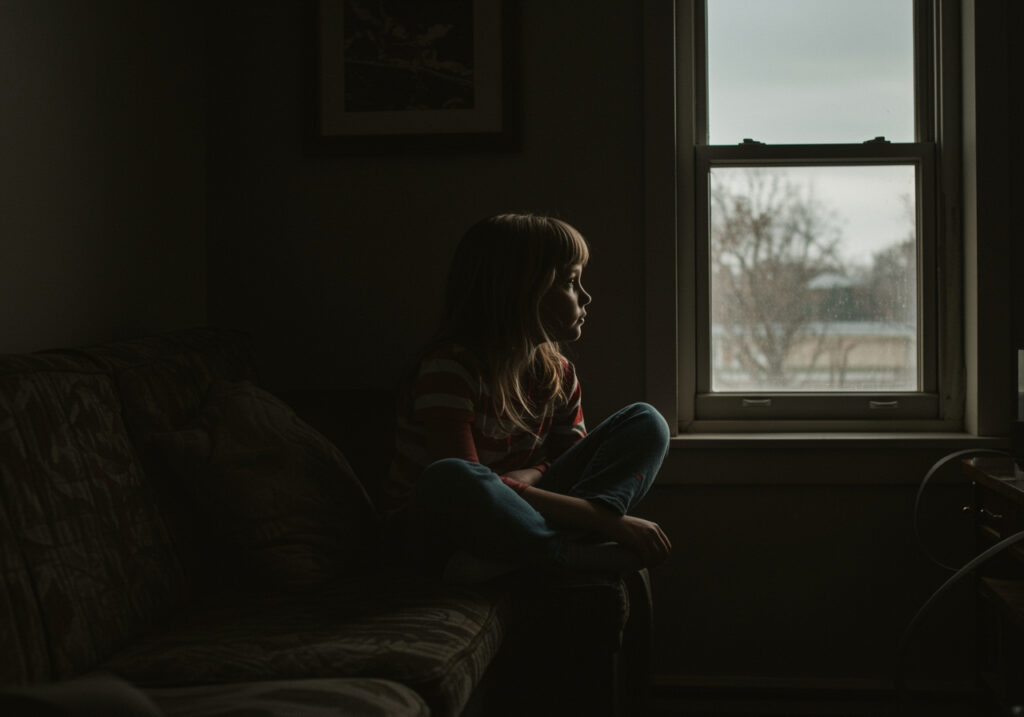Sometimes life hits us hard. We might lose someone we love or go through something really difficult. When this happens, we often feel broken and lost, wondering if we’ll ever be okay again.
But there’s hope. These painful experiences can actually help us grow stronger in ways we never expected. Psychologists call this post-traumatic growth. It’s when we use our pain as a chance to become stronger and discover new parts of ourselves.
When Trauma Changes Everything
Sometimes life changes suddenly and completely. When something bad happens – like losing someone, being betrayed, getting sick, or experiencing something tragic – it feels like our life is split into two parts: before and after.
When this happens, some people pull away and get stuck in their pain. Others start to change, even though it’s slow and difficult. They find new ways to live and see the world.
This journey isn’t easy or smooth. Sometimes it feels hopeless. But these changes are very real.

The Two Roads After Trauma
After something really bad happens to us, we usually react in one of two ways:
- We shut down. We get stuck in our pain, keep reliving bad memories, and pull away from others.
- We face it. We take small steps forward, even when it’s hard, and slowly grow into a stronger person.
We don’t usually choose these reactions on purpose – they just happen naturally. But once we realize how we’re dealing with it, we can help ourselves heal better. This understanding makes a big difference.
How Trauma Changes Our World
When something really bad happens to us, it turns our whole world upside down. What we thought we knew about life suddenly doesn’t make sense anymore. We keep asking ourselves “How did this happen?” and find it hard to accept our new reality.
We try to make sense of things. We wish everything could just go back to the way it was before.
To deal with our pain, we often try these different ways to cope:
- We tell ourselves it wasn’t really that bad
- We try to escape by drinking, overworking, traveling, or finding other distractions
- We can’t stop thinking about what happened, going over every detail
- We hope for impossible things, like someone saying sorry or magically fixing everything
But these ways of coping don’t really help us heal – they just put off the hard work of healing.
At some point, most people finally understand a hard truth: we can’t go back to how things were before. And that’s actually when real healing can begin.
Finding Yourself in Quiet Moments
When you take time to be alone and really face your pain, you start to discover new things about yourself. You feel sad about losing the person you used to be before the hard times.
This is when you start to heal:
- You let go of old ways of seeing yourself
- You stop believing untrue things about yourself and life
- You learn to help yourself instead of waiting for others to fix things
Instead of asking “Why did this happen to me?” you start asking “What can I do now?”
Finding Good in Bad Times
Take Steve Jobs as an example. When he got fired from Apple, the company he started, he felt terrible. But something unexpected happened. Being fired actually helped him. Without the pressure of running Apple, he could try new things and be creative again.
What seemed like the worst thing turned out to be really good for him. This is what we mean when we talk about growing after hard times.
Could your difficult experience also lead to something good in your life?
“You Are More Than Your Hard Times”
Something changes when you stop seeing yourself as just a victim of what happened and start thinking about who you want to be. This doesn’t mean you forget your past. It just means you don’t let it control your future.
Life might knock us down, but what really matters is how we choose to get back up.

How to Start Healing and Growing
Here are simple ways to help yourself heal and grow after going through something difficult:
1. Share Your Story
Talk about what happened in whatever way feels right to you – write in a journal, make art, create music, or speak with a counselor. Sharing your story, even if it’s messy, helps your mind make sense of what happened.
Here are some helpful questions to write about:
- “What have I learned about myself from this experience?”
- “How am I stronger now?”
- “What do I miss, and what has it taught me?”
2. Face Your Feelings
It’s natural to want to avoid painful feelings, but hiding from them doesn’t help you heal. Let yourself feel sad, angry, or scared. Remember that these feelings won’t last forever – they’ll pass when you let yourself feel them.
Simple things like deep breathing, focusing on your surroundings, or gentle movement can help you feel safe enough to deal with tough emotions.
3. Let Go of the Old Version of You
One of the hardest parts of healing is grieving not just a person or a moment, but yourself. The “you” before everything changed.
It’s okay to miss her. To miss the simplicity. But also know that who you’re becoming is someone with more depth, compassion, and wisdom than you ever imagined.
4. Find Meaning in Your Experience
Viktor Frankl, who survived the Holocaust, found that pain becomes easier to handle when we find meaning in it.
Instead of asking “Why did this happen to me?” try asking “What can I do with this experience?” This helps you find purpose.
You don’t need to figure everything out right away. Just start by looking at things differently.
5. Change Your Brain for the Better
Your brain changes after going through hard times. While trauma can make your brain more fearful, healing can make it stronger.
To help this happen, regularly practice:
- Being kind to yourself
- Spending time with others
- Finding safe spaces and activities
- Doing things you’re good at
6. Try New Things
After going through hard times, many people find they’re more creative and motivated than before. Use this energy.
Start small: write something, start a project, change your room around, or reach out to someone you’ve been thinking about.
Let yourself explore who you’re becoming.
7. Build Your New Life
Take small steps to create daily habits and relationships that fit who you are now. Don’t worry about who you used to be or who others think you should be.
Remember: you can change any part of your life that isn’t working for you.
The Gift Inside the Ruins
Post-traumatic growth doesn’t mean the pain disappears. It means the pain becomes part of the foundation of a wiser, fuller, more alive version of you.
You begin to:
- See beauty in everyday things
- Cherish relationships that matter
- Speak more truthfully
- Let go of the need to control everything
- Open your heart again
Not because the world is safe, but because you are stronger.
Bad things happen that we don’t ask for or deserve. But we can grow stronger from these experiences.
When we heal from trauma, we change in real ways. Many people find new strength and become helpers, artists, or leaders who make a difference in others’ lives.
Remember, you’re not facing this alone. As you heal and grow, you’ll become a stronger version of yourself.

Comments are closed.